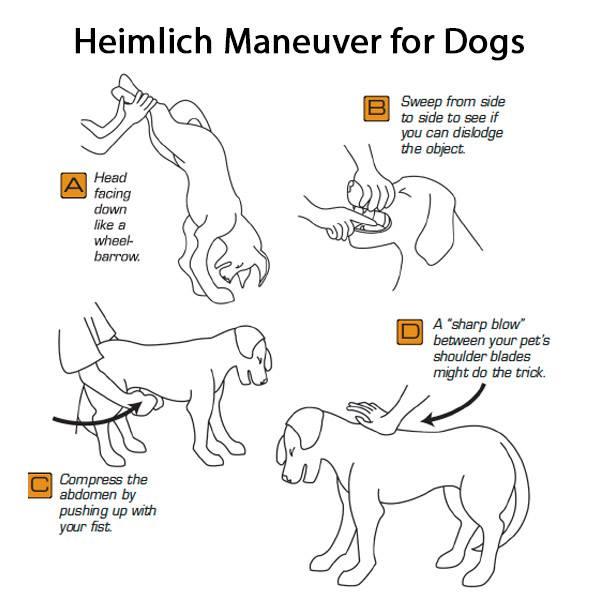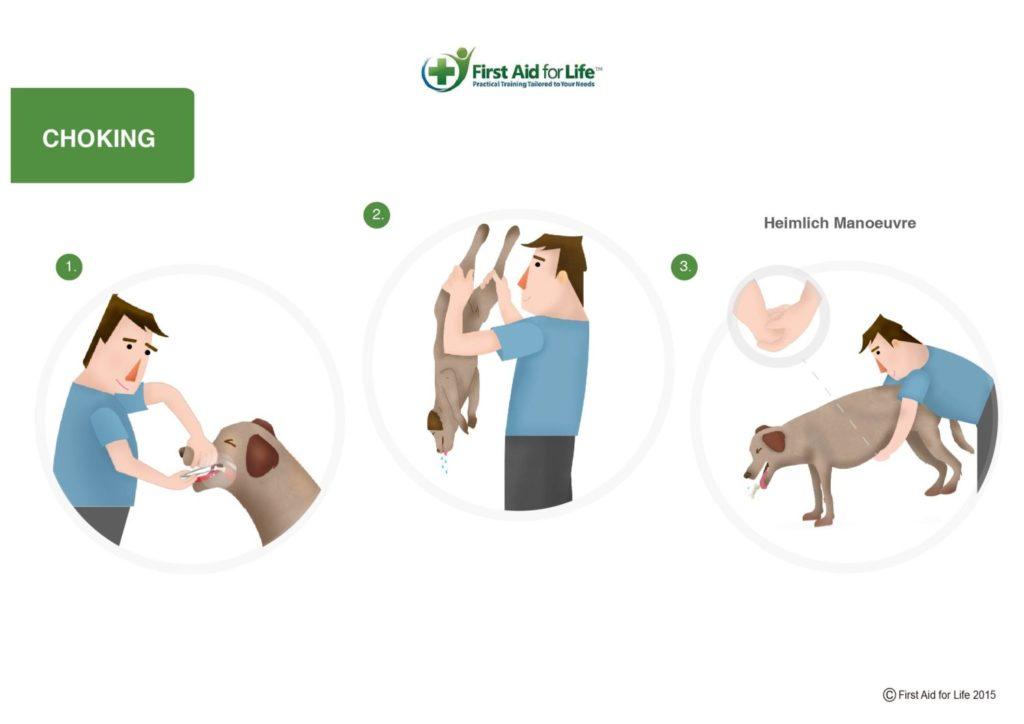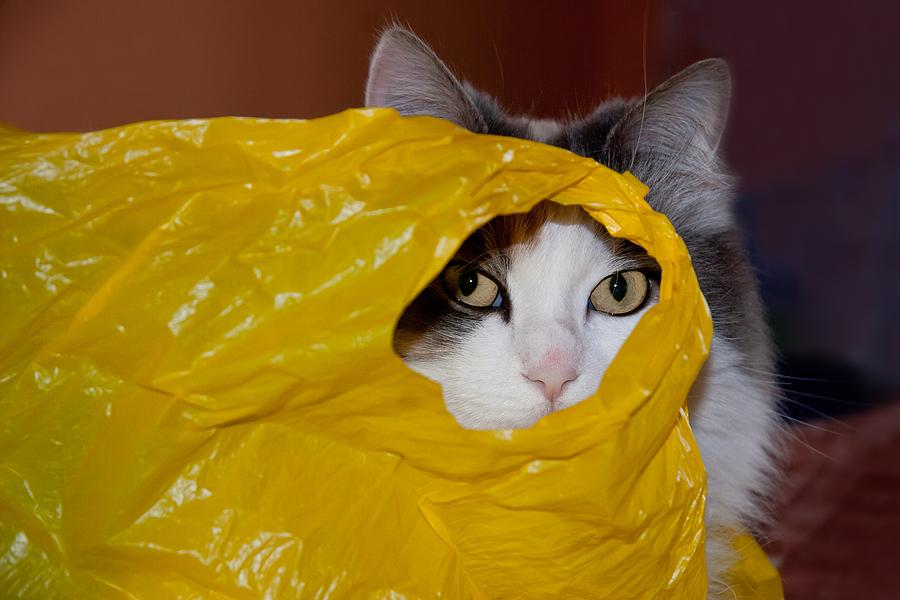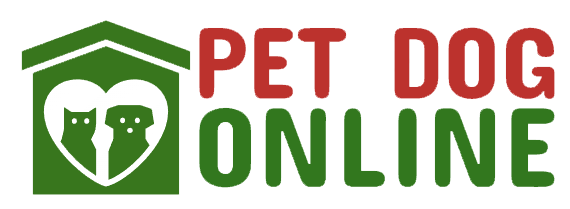
Emergency Guide: What to Do If Your Pet Chokes
Emergency Guide: What to Do If Your Pet Chokes
In a world where our furry companions fill our lives with joy, laughter, adn boundless affection, the thought of them facing a choking incident can be distressing for any pet owner. Just as we safeguard the health and well-being of our beloved animals through regular vet check-ups and proper nutrition,it’s equally meaningful to be prepared for emergencies that could arise in their everyday adventures. Choking can happen in the blink of an eye—during playtime, while eating, or even when exploring the world around them. But fear not; with the right knowledge and swift action, you can turn a potentially dire situation into a moment of empowerment. This guide is designed to equip you with essential steps and tips to know just what to do if your pet finds themselves in this frightening predicament. By the end of this article, you’ll feel confident and prepared to act calmly and effectively, ensuring that your cherished companion receives the care thay need in their time of distress.
Table of Contents
- Understanding Pet Choking: Signs and Symptoms to Watch For
- immediate Actions: Essential Steps to Take When Your Pet Chokes
- Dealing with Different Types of Choking: dogs vs. Cats
- Preventative Measures: Tips to Safeguard Your Pet from Choking Hazards
- In Summary

Understanding Pet Choking: Signs and Symptoms to Watch For
When it comes to our furry companions, understanding the signs that they might potentially be choking is crucial for prompt action. Look for immediate physical changes; if your pet is pawing at it’s mouth or has a frantic expression, these behaviors may indicate discomfort or distress. Additionally, listen for unusual sounds—your pet might make gagging or coughing noises, struggle to breathe, or exhibit wheezing. If they attempt to swallow repeatedly without success or display a blue-tinged tongue, it is indeed critical to act quickly, as these can be warning signs of a severe blockage.
Moreover, observe their overall demeanor.Sudden lethargy or weakness can signal that your pet is in trouble. Other indicators include excessive drooling, difficulty standing, or an unwillingness to engage with you or their favorite activities. If you notice any combination of these symptoms, it is indeed imperative to seek veterinary assistance promptly. Your awareness of these signs can mean the difference between life and death, ensuring that you are prepared for any choking emergency your pet may face.

Immediate Actions: Essential Steps to Take When Your Pet Chokes
When your pet suddenly begins to cough,gag,or show signs of distress,the frist step is to remain calm and assess the situation. Check your pet’s mouth to see if you can visibly identify any object lodged in their throat. If you can see the object, you might potentially be able to remove it gently with your fingers. If you can’t reach it, or if your pet is unable to breathe, it’s crucial to initiate the following actions:
- Perform Back Blows: For larger pets, position yourself behind them and deliver firm hits between their shoulder blades with the heel of your hand.
- Execute Abdominal thrusts: For pets weighing more than 15 pounds, stand behind them, place your arms around their waist, and perform speedy thrusts inward and upward.
- Know When to Call for Help: If these methods are unsuccessful within moments, contact your veterinarian or an emergency animal clinic immediately.
For smaller pets, such as cats or small dogs, a modified technique is required. Hold them with their back against you and use your fist to deliver sharp thrusts just below their ribcage. In either case, it is indeed also helpful to keep a pet first aid kit handy. here’s a simple table outlining the kit essentials:
| Item | Purpose |
|---|---|
| Sterile Gauze | to control bleeding |
| Scissors | To cut bandages or muzzles |
| Emergency Contact Numbers | For quick access to your vet |
| Tweezers | For removing splinters or ticks |

Dealing with Different Types of Choking: Dogs vs.Cats
Choking can manifest quite differently in dogs and cats, necessitating tailored approaches when they face this distressing situation. For dogs, known for their curious natures, choking often occurs consequently of swallowing large objects or food pieces without proper chewing. Signs to watch for include gagging, retching, or an inability to vocalize.If your dog is choking, you may consider the following actions:
- check their mouth carefully for visible obstructions.
- Perform the Heimlich maneuver by placing your hands just below the rib cage and thrusting inward and upward.
- If the obstruction persists, take your pup to the vet immediately.
On the other hand, cats tend to choke on smaller items or hairballs, making their responses distinctly different. A choking cat might exhibit increased salivation, coughing, or an excessive attempt to swallow. If you suspect your cat is choking, the following steps may be helpful:
- Gently inspect their mouth, but be cautious as they may bite when distressed.
- Encourage them to drink water if they are conscious and alert,which may help clear the throat.
- If necessary, seek veterinary assistance promptly.
| Pet Type | Common Causes of Choking | Immediate Response |
|---|---|---|
| dog | Large toys, bones, or food | Heimlich maneuver |
| cat | Small objects, hairballs | Encourage drinking water |

Preventative Measures: Tips to Safeguard Your Pet from Choking Hazards
Keeping your furry companions safe from choking hazards requires proactive strategies that cater to their natural instincts of curiosity and playfulness.Start by closely evaluating the items in your home and yard that could pose risks. Small toys, buttons, and nails can easily be mistaken for chewable treasures. To prevent unfortunate incidents, consider adopting the following measures:
- Regularly check toy labels to ensure they are appropriate for your pet’s size.
- Eliminate small items that can be easily swallowed or chewed off.
- Supervise playtime, especially with new or complex toys.
- Create a safe space where your pet can play without access to choking hazards.
Additionally, it’s essential to scrutinize your pet’s diet and chew toys. Certain foods,such as grapes,raisins,and hard bones,are not only popular but can also turn into threats when they get lodged in the throat. To mitigate these risks, try this simple guideline:
| Safe Food Choices | Foods to Avoid |
|---|---|
| Carrots (cut into small pieces) | Grapes |
| Cooked chicken (shredded) | Raisins |
| Peanut butter (unsweetened) | Hard bones |
By implementing these preventative measures, you are taking significant steps toward ensuring your pet’s safety and reducing the risk of choking incidents in your home.
In Summary
As we conclude our extensive guide on navigating the alarming situation of pet choking, remember that preparedness is your best ally. With a wealth of knowledge at your fingertips, you’re now equipped to act swiftly and confidently should the unexpected arise. Your furry companions trust you to keep them safe, and understanding how to respond in emergencies is a vital part of that commitment.
We encourage you to keep this guide handy and share it with fellow pet owners. A little awareness can make all the difference in critical moments. Lastly, don’t forget to consult with your veterinarian regularly about your pet’s health and safety. Together, we can ensure that those precious moments with our beloved pets are filled with joy rather than fear. Stay informed, stay calm, and always prioritize your pet’s well-being.





